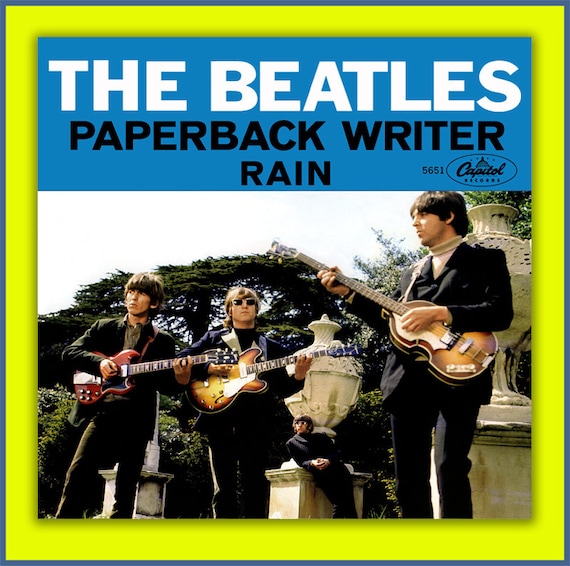Music
It’s Ringo Starr’s birthday today – July 7th – so we’ve decided to look through the CLASH archive, and re-discover how the genial drummer turbo-charged a proto-psychedelic classic.
Released in 1966, ‘Paperback Writer’ b/w ‘Rain’ might just be one of the decade’s defining 45s. Stretching the beat template until it burst, the A-side became an international hit, the withering lyrics set to a scorching guitar riff.
On the flip, ‘Rain’ pointed to the emerging sounds of psychedelia – matching droning harmonies to the latest studio effects, the track was actually slowed down a pinch to add to its other-worldly feel.
Ringo Starr was tasked with creating a drum part that made sense of such a strange, yet evocative piece of songwriting – and the results arguably took ‘Rain’ to another transcendental level.
The isolated drum parts can be found online, and it illustrates all that makes Ringo Starr such a revered drummer – the tight-but-loose feel, the experimental flourishes, and the way he leads with his left hand all make this an incredibly intricate piece of drumming, but one that ultimately serves the song.
Check it out below.

CLASH spoke to Paul McCartney back in 2009, and he reflected on the debate over which song to prioritise – ‘Paperback Writer’ or ‘Rain’.
He said: “We always just had a talk about it. George Martin had a say, we kind of had a say… I think we in the Beatles had always liked ‘Rain’, but I think we thought that as a song, as a kind of radio thing, ‘Paperback Writer’ was a bit more immediate.”
“I know we all liked ‘Rain’, but some of the things we liked were kind of, not ‘underground’, but underground, if you know what I mean; it was a little bit off the beat, leftfield, and ‘Rain’ was one of them. Why we particularly liked it was cos we did tricks with the speed; we recorded it fast and then slowed it down, the backing track. That was one of the first times we’d done that. I used to do a lot of experimentation with my tape recorder at that time, so a few of these ideas found their way into the studio.”
“With my tape recorder, I had the ability to speed up or slow down – it was an old Brunel – so I sometimes recorded things fast and slowed them down just for experimental music I was doing at the time, for my own pleasure -it never saw the light of day. In fact it’s such a pity, because somewhere it got lost, and there was quite a lot of stuff which now would be really pretty interesting, cos I put together little tape loop symphonies and used to use the speed change a lot. So, we got that idea into the studio.” We said, ‘Well, look, why don’t we just figure out what key we want ‘Rain’ to end up at and what speed we want it to end up at, and then we’ll just do it faster and then we’ll slow it back down to that key. So we did. If it ended up in G then we recorded it in A, about a tone difference. And we just recorded it like [hums song faster than usual], then slowed it down to that swampy kind of beat.”
“So yeah, we loved it… I think ‘Paperback’ was just a bit more suitable for radio play.”
Related: Lessons We’ve Learned: Ringo Starr On Peace, Love And Life






